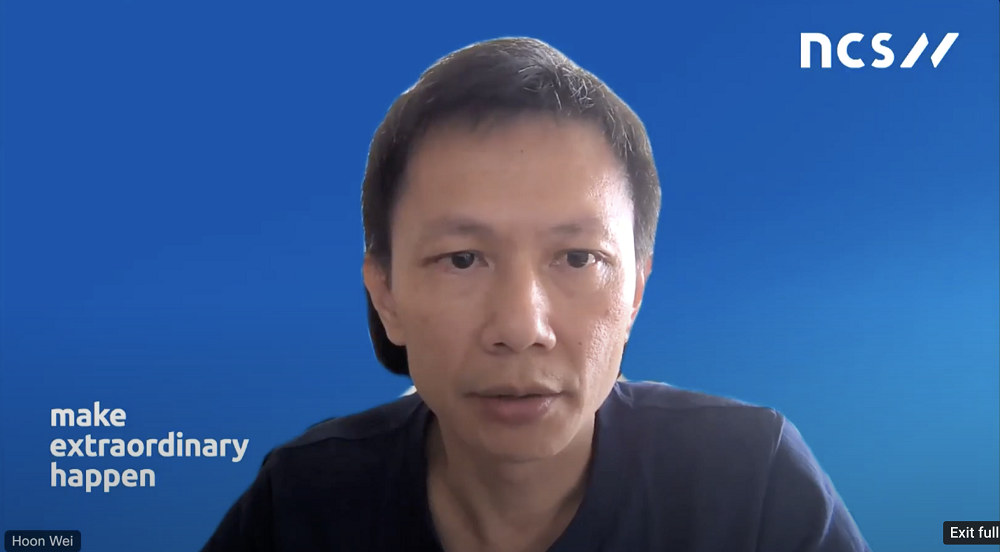Tech titan IBM and multinational IT company NCS held a virtual media briefing on Wednesday, Jan. 31, to announce the signing of an agreement formalizing their collaboration to prepare the Asean region for the growing threat posed by advancing quantum computing.
Quantum computing is the technology that utilizes the laws of quantum mechanics to work out computing problems considered unsolvable by classical computers. These capabilities could lead to valuable discoveries such as the easier identification of fraud patterns or accelerating the development of new materials.
Like any powerful tool, though, quantum computers can be exploited. No quantum computer that can outperform classical computers exists today, but IBM stresses that quantum super computers will soon render obsolete the prime factorization principle that underlies the encryption protocols governments and corporations worldwide employ to protect sensitive information.
During the briefing, Ray Harishankar, IBM Fellow from IBM Quantum Safe, described how bad actors can wield the technology. For instance, attackers will be able to decode confidential data stolen even years back, target legacy systems with fraudulent software updates, manipulate digital evidence, and expose encrypted messages sent over telecommunications networks.
“While we are not in the business of speculating when things may occur. We believe that by early 2030s, we would have a cryptographically relevant quantum computer,” Harishankar stated.
Countries around the world are beginning to address the danger before it materializes. In fact, Lory Thorpe, IBM Research Quantum Safe industry lead, mentioned during the briefing that countries in Europe are holding discussions with IBM about the dangers of quantum computing. Twelve nations worldwide have also introduced post-quantum government initiatives.
Dr. Lim Hoon Wei, R&D and Special Ops principle director at NCS Group, underscored the gravity of the threat by saying: “According to the world economic forum, a staggering 20 billion digital devices — ATMs, smartphones, and so on — are projected to require upgrading or replacement to quantum-safe cryptography in the next one to two decades.”
Based on these estimates, IBM is urging Asean governments and organizations to prepare against the quantum threat as early as now because migrating data to quantum-safe encryption is a process that they estimate can take seven to ten years to complete.
The collaboration with NCS is one of the first steps to ready Asean against quantum computer risks. The MOU signed by these two companies outlines plans to co-develop and provide end-to-end quantum-safe and privacy-enhancing services for public agencies and enterprises in Singapore.
Singapore is an ideal place to center their initial efforts as it is one of the 12 countries that are already acting on risks posed by quantum computers by launching a post-quantum cryptography government initiative.
Both IBM and NCS, however, aim to expand the scope of the project beyond Singapore and are collaborating with other organizations, such as the Asean HPC Taskforce, to promote awareness among other nations in the region of the dangers posed by quantum computers.
They particularly emphasize that Asean governments as well as organizations in healthcare, telecommunications, and others industries that are compelled to secure data for extended periods of time due to regulatory requirements should start shifting to quantum-safe cryptography.
IBM recommends that Asean organizations begin the journey towards quantum safety by identifying and understanding their current cryptography usage. From there, they can draw up a plan to migrate their data to emerging post-quantum cryptography standards.
“It is not that one has to go and do an inventory of all the [encrypted] systems that are out there and then deal with all the issues. There’s a way we can prioritize what needs to be done and incrementally go and work with what [organizations] believe is the most valuable, vulnerable, or critical systems they need to protect and start from there…so they can position themselves to do well in the future,” advised Harishankar.
Harishankar asserted, “If we plan and begin to act now, this [threat to current encryption protocols posed by quantum computers] is certainly a solvable and surmountable problem.”




